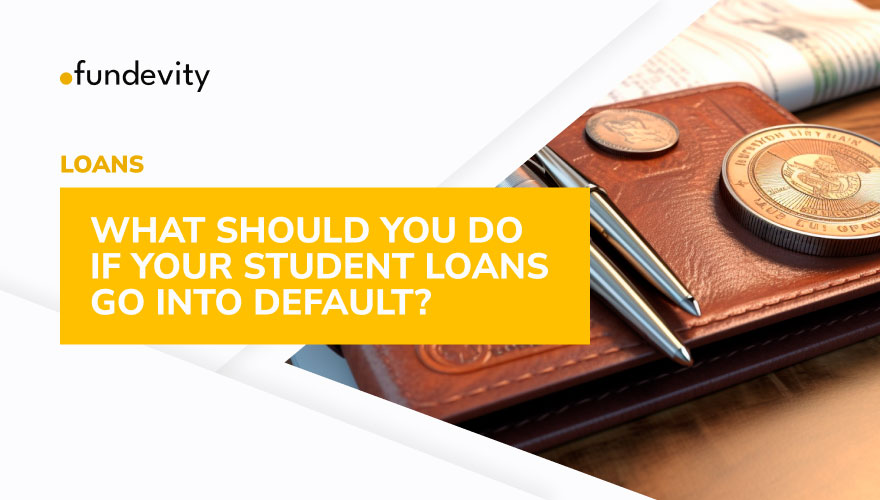What Happens If You Don’t Pay Student Loans?

Not paying your student loans can be really problematic. There are plenty of consequences when it comes to college loan debt, also called education loan debt. In this article, we will explain each of these consequences and also tell you what to do if you have not paid your student loan and are in debt.
The first thing that will happen is that your credit score will suffer, and it will suffer a lot. This can make it difficult to get a loan in the future, as lenders will see you as a high-risk borrower.
Additionally, your student loan debt will continue to grow as interest accrues. And if your student loan eventually defaults, the government then can take aggressive steps to collect the money you owe, including wage garnishment and tax refund interception. So it’s really important to stay on top of your student loan payments and make them a priority in your budget.
What Happens If You Default on a Federal Student Loan?
So what happens when you default on a federal student loan?
There are a few things that will happen. The first is that if you default on a federal student loan, you will lose eligibility for any additional federal student aid. You will also be unable to renew your driver’s license, or professional license, or participate in the U.S. Department of Housing and Urban Development’s Section voucher program.
On top of that, your credit score will be negatively affected, making it difficult to obtain a mortgage, car loan, or other types of financing. If you default on your loan, the entire unpaid balance of your loan and any interest will become immediately due and payable.
The government can also garnish your wages and tax refunds to collect on your defaulted student loan.
What Happens If You Default on a Private Student Loan?
What happens when you default on a private student loan, is there a difference between private and federal student loan debt?
The short answer is yes but they do have similarities. If you default on a private student loan, your lender may pursue any or all of the following actions:
- Take legal action against you
- Garnish your wages
- Place a lien on your property
- Damage your credit score
Your lender may also require you to pay late fees, collection costs, and attorney’s fees. If you are unable to repay your loan, you may end up losing your home, car, or other assets.
What Should You Do If Your Student Loans Go Into Default?
There are some things you can do. The best way to avoid default is to stay on top of your payments. For many that is easier said than done.
If you can’t afford the minimum payment, contact your loan service to discuss your options. One option for getting your loan out of default is loan rehabilitation. In order to start the loan rehabilitation process, you must contact your loan holder and discuss it with them.
To rehabilitate most defaulted federal student loans, you must sign an agreement to make a series of nine monthly payments over a period of 10 consecutive months. The monthly payment amount you will be offered will be based on your income, so it should be affordable.
If you default on your student loans, you will damage your credit score, which will make it difficult to get a car loan, a mortgage, or even a job. Your credit report will show the default for seven years, and your wage could be garnished. The worst thing that can happen is that you may also be sued for the balance of your loan.
Are Student Loans Forgiven After Seven Years?
Many believe that student loans are forgiven after seven years but they are not. You are responsible for repaying your student loans in full, plus interest, regardless of how long it takes you to repay them.
If you don’t make your student loan payments on time, you may be charged late fees and your credit rating could suffer. Additionally, if you default on your student loans, the entire balance of your loan could become due immediately and your loan could be sent to collections. So, make sure you are on top of your payments every month.
How to Manage Your Student Loan Payment Properly
If you are one of the millions of people with student loan debt, you know that making your monthly payment can sometimes be a challenge. But what happens if you can’t make your payment? What are the consequences of not paying your student loans? How do I as a student manage my school loans properly? There are ways of managing your student loan debt.
Some ways to manage student loan debt include paying more than your monthly bill, sticking to a budget, consolidating or refinancing your loans, looking into ways of loan forgiveness, and exploring different payment programs.
Bottom Line
Not paying your loans, whether they be school, private, federal, or any other type of student loan causes some major consequences. It is important to know what those are and ways of preventing them, and do some research when taking out a loan.
Do not rush it if you cannot afford it. If you are struggling to make payments, the most important thing is to reach out to your lender and explore other options before simply stopping payments altogether. It is so important to get out of debt as quickly as possible so do not be shy to ask your friends or family for help.


